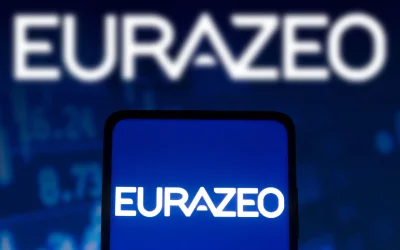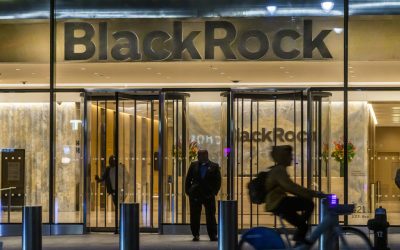Private equity giants, including Apollo and Blackstone, are investing in Hollywood production companies as they look to reap the $115bn annually that US streaming services pour into TV shows and movies.
These investors are betting that the fierce demand for new TV shows will continue for many more years, according to interviews with top CEOs.
“Broadcasting continues to go viral and has led to an incredible demand for premium text-based content,” said David Sambur, co-head of Apollo’s Private Equity division.
Apollo last week bought a $760 million stake in Legendary, the Chinese-owned film studio Dune And GodzillaBlackstone has committed more than $2 billion to build a new production company led by former Disney executives. Centricus, a London-based fund, is said to be in talks to buy a majority stake in Imagine Entertainment, the production company behind shows like stunted development.
Get the week’s top news delivered directly to your inbox – Sign up for our newsletter
Private equity has plummeted at the same time investors are scrutinizing the sustainability of the influx as a business model. Netflix, Disney, WarnerMedia and others are spending unprecedented amounts of money to feed their streaming services – the Financial Times has calculated that the eight largest US media groups plan to spend at least $115 billion on programming this year.
Most of these services lose money because the work is very expensive.
But their loss is a gain for anyone who can create content for live stream creators. Entertainment executives say there has never been more money available to fund new shows. “The competition for content is at the highest level I’ve seen in 26 years,” Endeavor CEO Ari Emmanuel said at a conference in September.
As a result, “ratings [of content] It’s gone up significantly over the past year, to two or three times where we thought it would be,” Sambur said.
Both Apollo and Blackstone are investing in companies that can act as “arms dealers” for live streamers, transforming content to meet their demands.
Blackstone executives believe that by building an independent production startup in a market dominated by large conglomerates, they can act more agile. “The way content is created, distributed and consumed has fundamentally changed,” said Joe Baratta, head of private equity at Blackstone.
Blackstone has partnered with Kevin Mayer and Tom Staggs, two experienced entertainment executives who have been left behind for Hollywood’s biggest job: the CEO of Disney.
The Candle-named company last year bought Reese Witherspoon’s Hello Sunshine subsidiary in a $900 million deal. The deal caught the attention of Hollywood executives for its valuation, which was about seven times Hello Sunshine’s 2020 revenue of $65 million.
Candle has also acquired Moonbug Entertainment, the studio behind the successful children’s show cocumillonfor $3 billion, and bought a $60 million minority stake in Westbrook, Will Smith’s studio.
“All of these companies are capital dependent and generate cash,” Paratha said, adding that Kandel is already making “high returns” on the stock and will continue to look for acquisitions. “It is like the greatest M&A advisory business. It operates on people, credibility, reputation and talent.”
Blackstone, which is building a candle to eventually be listed on the public markets or sold to a larger media company, has also invested billions of dollars on audio platforms in its real estate business, another game in making money from the production frenzy.
Meanwhile, Apollo has taken a different approach, dipping its toes into entertainment by investing in Legendary, one of the few independent studios that survived a massive industry-wide merger. “This deal is a very Apollo-esque way of playing this trend. There is tremendous value in [Legendary] library, and we have a lot of downside protection in investing,” Sambur said.
“There are not many high-quality producers and standards for premium content left. I would argue that Legendary is the largest independent company still available,” he added. Legendary, which China’s Dalian Wanda bought for $3.5 billion in 2016, is now profitable, according to people familiar with the matter.
Other potential targets include A24, the prestigious film studio behind it moon light And midsummer. People familiar with the matter said A24, which is partly owned by Todd Boehle Industries, held talks with suitors last year. Village Roadshow, an independent distributor who has funded films including JokerIt is also exploring a sale, according to people familiar with the matter.
“Private equity is coming in and looking to go public, get a quick return on their investment,” said a longtime Hollywood executive. “In the next few years, everything will change in terms of who is left standing.”
Source: Yadabuzz
Can’t stop reading? Read more
Fund Friday: Top fundraising news in private equity
Fund Friday: Top fundraising news in private equity Eurazeo has secured €480m, or roughly $567m,...
Blackstone secures regulatory approval to buy stake in India’s Federal Bank
Blackstone secures regulatory approval to buy stake in India’s Federal Bank Blackstone has...
BlackRock folds Aladdin deeper into private markets with unified data platform
BlackRock folds Aladdin deeper into private markets with unified data platform BlackRock is...




